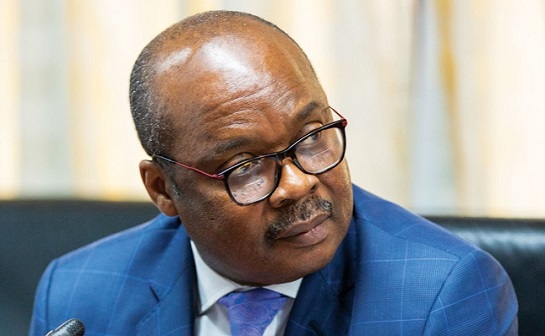The Bank of Ghana (BoG) has reiterated its commitment to pursuing policies aimed at achieving stable inflation levels, in line with its medium-term target of 8 percent.
Despite reporting a loss of GH¢10.5billion for 2023, the central bank remains focused on its mandate of price stability.
The Director of Communications, Bernard Otabil, in a statement emphasised that bringing inflation down to the target level is a precondition for achieving sustainable economic growth and ensuring long-term economic prosperity in Ghana.
“Achieving low and stable inflation helps to promote exchange rate stability under a floating currency regime,” Mr. Otabil said.
The BoG’s financial statements for 2023 showed that total operating income increased by 47.3 percent to GH¢8.80billion, driven primarily by interest earned on investments in securities and bonds held abroad, fines imposed on institutions for regulatory breaches, and fees and charges. However, the bank also incurred significant expenses, with the cost of open market operations increasing more than fivefold to GH¢8.3billion compared to GH¢1.7billion in 2022.
Mr. Otabil explained that the increase in costs associated with open market operations was necessary to mop up excess liquidity in the economy and support the disinflationary process.
“Reducing inflation by over 30 percentage points, the Bank of Ghana incurred GH¢8.3billion costs on open market operations,” he said. “Central bank actions are socially beneficial actions, and that is the special character of central banks. Central banks can make losses, get into negative accounting equity and function completely successfully. Therefore, central banks are not expected to compromise policy objective to report handsome profit.”
Despite the losses incurred, BoG’s aggressive mopping up operations contributed to slowing down inflation to 23.2 percent by end of 2023 – significantly down from the rate of 54.1 percent at end-2022.
Mr. Otabil emphasised that a loss does not imply loss of policy effectiveness, and said the bank’s strong actions to control inflation reinforce its credibility and commitment to its mission.
“Our strong actions to control inflation reinforce our credibility and commitment to our mission. Showing that we can effectively manage inflation boosts confidence both domestically and internationally. This trust is vital for attracting foreign investment and maintaining favourable trade conditions,” Mr. Otabil said.
As macroeconomic conditions continue to improve and inflation declines toward the medium-term target, BoG expects interest rates to decline – leading to a reduction in the cost of open market operations. The bank also anticipates that a decline in inflation will support exchange rate stabilisation, further improving its financial position.
Per the 2023 annual report, the Monetary Policy Committee expects to continue monitoring risks in the economy and pursuing policies geared toward anchoring inflation expectations and minimising exchange rate volatilities.
The BoG’s Board is also taking actionable steps to ensure a recovery and build-back of a positive equity position within the medium- to long-term – including refraining from monetary financing of government’s budget, optimising its investment portfolio and operating cost mix, and securing early recapitalisation through a memorandum of understanding.
“The 2023 financial statements demonstrate our unwavering commitment to our price stability mandate and the well-being of all Ghanaians,” the Director insisted.
B&FT





